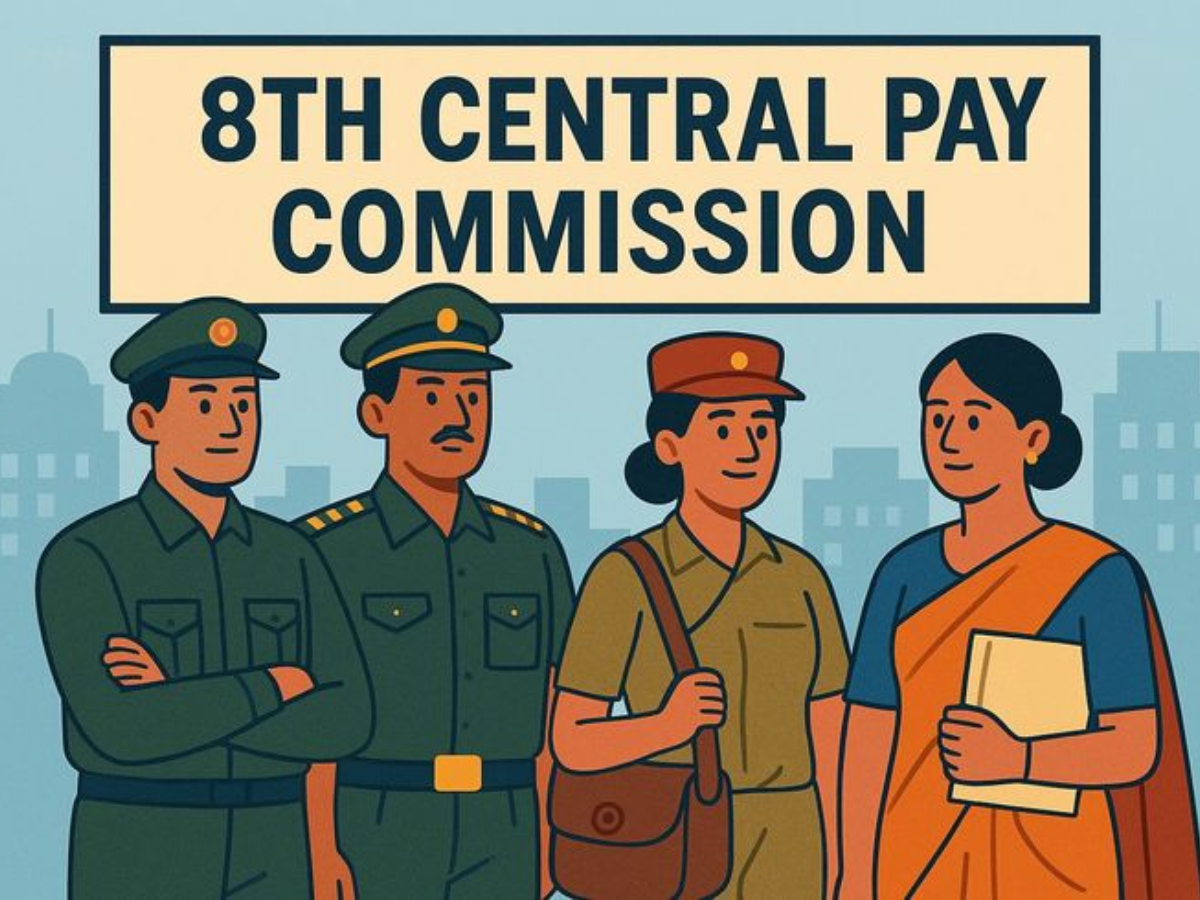
8th Pay Commission (Image Credit: Pinterest)
8th Pay Commission Latest News: The 8th Central Pay Commission (CPC) is likely to herald a significant revision of the salaries and pensions of the employees of the central government and pensioners. The Union Cabinet approved the commission in January 2025, which is expected to propose new pay structures, benefits, and pensions, along with allowances that will substantially increase the incomes.
This revision is expected to affect more than 1 crore beneficiaries, comprising approximately 50 lakh employees and 65 lakh pensioners, with inputs collected by the ministries, defence forces, and state governments.
The 8th Central Pay Commission, whose recommendation was passed on January 16, 2025, is likely to make its recommendations by the end of 2025, which is likely to be implemented on January 1, 2026, but delays may make it happen in 2027. The procedure entails formation of wide consultations with ministries, defence forces, and state governments before the government names the chairperson and members of the commission to prepare the final report.
One of the factors that compels revision of the pay is the fitment factor, which is a multiplier factor to the current basic pay, resulting in a new basic pay structure.
Developed Estimate: 1.8x to 2.46x
Estimated Salary Increase: 30-34 percent on average (may go anywhere between 14 to 54 percent based on grade and situation)
Dearness Allowance (DA) Reset: Dearness allowance (DA), which is now approximately 50-60 percent of the basic pay, will be reset to zero after its implementation, and begin again based on the new structure of pay structure.
Minimum basic pay could increase significantly in case the proposed fitment factor of 2.46x is adopted.
For example:
Earlier Minimum Basic Pay: 18000
Proposed Minimum Basic Pay: Rs. 44280 (at 2.46x)
There would also be a proportional rise in higher pay bands, an enhancement of allowances, and better retirement benefits.
Greater Disposable Income: More disposable income in the form of higher take-home pay of central employees and improved pensions of retirees.
Economic Stimulus: Other industries that may get a boost are the car market, FMCG, and real estate, with increased consumer spending.
Upgraded Lifestyle: Having more funds to save, invest, and advance the living conditions.
Though the 8th CPC is good in terms of pay package, it will also strain the Union Budget. The increase in salary and pension costs may curtail the budgets towards infrastructure and other development projects, and fiscal management is a juggling act.
Actor Ram Charan and wife Upasana Konidela welcomed twins, a baby boy and a baby…
Six people, including five from the same village, were killed after two auto-rickshaws collided with…
A mass shooting occurred in Clinton, Louisiana, on January 31, 2026, during a Mardi Gras…